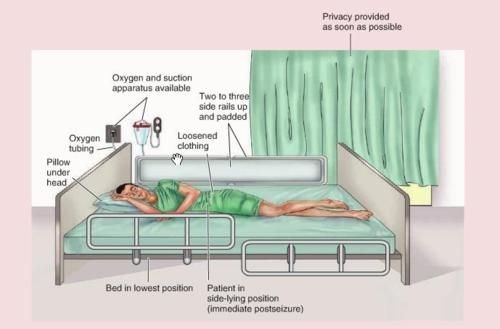Exhibits
The nurse is preparing the client for surgery. Which of the following actions should the nurse take? Select all that apply
Obtain a complete blood count.
Prepare client for insertion of 18-gauge peripheral IV prior to surgery.
Administer Rh, D immune globulin prior to surgery.
Explain the surgical procedure to the client.
Verify consent form is signed by the client.
Assist with administration of AB positive blood products if needed.
Remind client to be NPO prior to surgery.
Correct Answer : A,B,C,E,G
Based on the given information, the nurse should take the following actions in preparation for surgery:
- Obtain a complete blood count: This is important to assess the client's hemoglobin, hematocrit, and other blood parameters before surgery.
- Prepare the client for insertion of an 18-gauge peripheral IV prior to surgery: Adequate IV access is necessary for the administration of fluids and medications during and after surgery.
- Administer Rh, D immune globulin prior to surgery: This action is indicated if the client is Rh-negative and there is a possibility of fetal-maternal blood mixing during the termination of pregnancy. Rh, D immune globulin is given to prevent sensitization to Rh-positive blood.
- Verify consent form is signed by the client: Ensuring that the client has provided informed consent is essential before proceeding with any surgical intervention.
- Remind the client to be NPO (nothing by mouth) prior to surgery: It is important for the client to have an empty stomach to reduce the risk of aspiration during anesthesia.
The following actions are not indicated based on the given information:
- Explaining the surgical procedure to the client: Although it is important for the client to have an understanding of the procedure, this is typically done by the surgeon rather than the nurse.
- Assisting with administration of AB positive blood products if needed: There is no indication of the need for blood products based on the information provided. Blood product administration would be determined based on the client's specific condition and surgical requirements.
Nursing Test Bank
Naxlex Comprehensive Predictor Exams
Related Questions
Correct Answer is D
Explanation
The priority is to address any significant changes in the child's behavior, such as withdrawal, as it may indicate emotional or psychological distress. Switching daycare providers can be a significant event for a young child, and it is essential to explore the reasons behind the child's withdrawal and address any potential underlying issues. The nurse should gather more information, assess the child's emotional well-being, and discuss any concerns or observations with the guardian. This will help identify appropriate interventions or support for the child's emotional adjustment.
While the other statements may also warrant attention, the potential emotional impact of the daycare provider change on the child's behavior and well-being takes priority in this case. The nurse should address the other concerns raised by the guardian during the assessment process, but the immediate focus should be on addressing the child's withdrawal and ensuring their emotional well-being.
Correct Answer is B
Explanation
Lowering the side rails of the bed could lead to the client falling from the bed. Instead raise the side rails and place padding on them.
Measuring the seizure duration is a crucial step for medical evaluation afterwards necessary for determining intervention.
Inserting an oral airway into the client's mouth is not indicated during a tonic-clonic seizure. It is generally not recommended to place any objects or devices into the mouth of a person having a seizure, as it can potentially cause injury to the person or damage to the airway.

Whether you are a student looking to ace your exams or a practicing nurse seeking to enhance your expertise , our nursing education contents will empower you with the confidence and competence to make a difference in the lives of patients and become a respected leader in the healthcare field.
Visit Naxlex, invest in your future and unlock endless possibilities with our unparalleled nursing education contents today
Report Wrong Answer on the Current Question
Do you disagree with the answer? If yes, what is your expected answer? Explain.
Kindly be descriptive with the issue you are facing.
